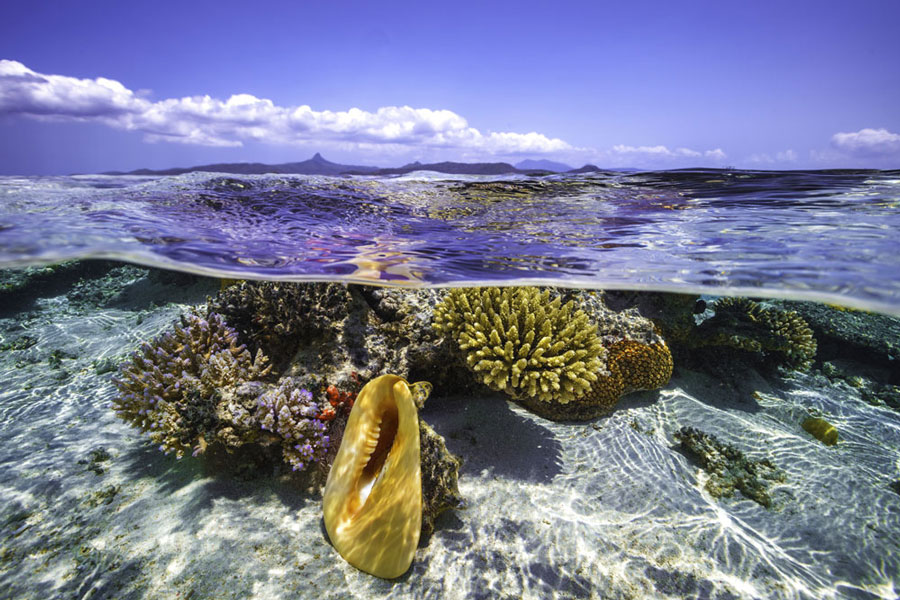Hold on to your scuba masks because we’ve got some wild news for you—coral reefs are misbehaving!
That’s right, underwater communities are breaking all the rules and thriving in unexpected conditions. Our field teams are studying these reefs across the globe—from Tela Bay, Honduras to Hilo, Hawaii.
Maybe they’re onto something. Could these misbehaving coral reefs be the key to unlocking the secrets of climate adaptation for all coral reefs? We are working alongside the Healthy Reefs Initiative to study their characteristics because they may provide valuable insights for our conservation efforts.
What is a Misbehaving Reef?
Misbehaving coral reefs are those that are thriving in conditions that would normally be considered unfavorable for coral growth. For example, some coral reefs are growing in areas with high levels of turbidity, where murky water blocks sunlight and reduces photosynthesis. According to Melanie McField, Director of the Healthy Reefs for Healthy People Initiative (HRI), “these reefs in Honduras are defying our expectations of what coral can tolerate and where it can thrive. We would expect these reefs to be overgrown with algae and have very low coral cover. But instead, we are seeing one of the highest in the whole Caribbean. They’re not reading the coral reef ecology textbooks!”
Climate change is causing rising sea temperatures, increased ocean acidification, and more frequent and intense storms, all of which are placing stress on coral reefs. However, if we can identify the factors that allow misbehaving coral reefs to thrive, we may be able to use this knowledge to help other reefs adapt to changing conditions.
One theory is that misbehaving coral reefs may have unique genetic adaptations that allow them to tolerate different environmental conditions. For example, some corals may have evolved to tolerate high levels of turbidity by growing thicker tissue or producing more mucus to protect their delicate polyps from sediment particles. All corals have a symbiotic relationship with algae, but some may have adapted to higher nutrient levels, and we need to research why. The rate of change in nutrient concentrations is likely very important. Similarly, the increased turbidity in some areas may be providing a protective layer that shields coral from ultraviolet light that can exacerbate coral bleaching in times of high heat stress.
Whatever the reason for their success, misbehaving coral reefs offer valuable insights for conservation efforts,” says Jennifer Myton, CORAL’s Conservation Program Director. “By studying these reefs, researchers can identify the factors that allow them to thrive and use this knowledge to develop strategies for protecting other reefs in the face of climate change. For example, if genetic adaptations are the key to misbehaving coral reefs’ success, conservationists could focus on fully protecting reefs with these uniquely adapted corals.
Science to Action
Melanie believes that “the opportunity here not only lies in the science to discover why these reefs are misbehaving but also in the conservation work to ensure their protection. We need to get these reefs into fully protected zones. This will ensure that overfishing is reduced, and we can build resilience. Sometimes unexpected behavior is good.”
CORAL and HRI have a shared vision to increase protections of coral reefs that can be key to long-term preservation and climate adaptation. The work ahead will be community-informed, science-driven—and will hopefully solve the mystery of misbehaving reefs.
We will keep you updated on these rebellious reefs as we learn more. We are hopeful that we will identify the factors that allow them to thrive and use this knowledge to develop strategies for protecting other reefs in the face of climate change. With the right conservation efforts, we may be able to help coral reefs continue to provide vital ecosystem services for generations to come.

